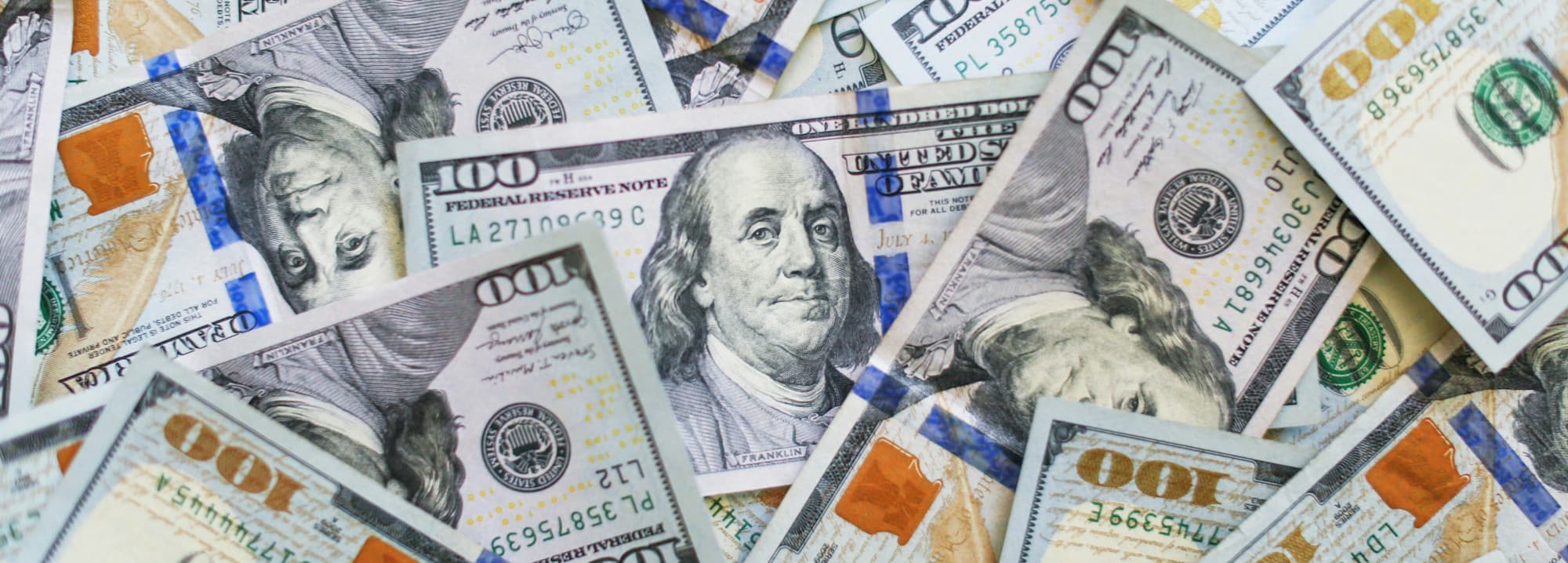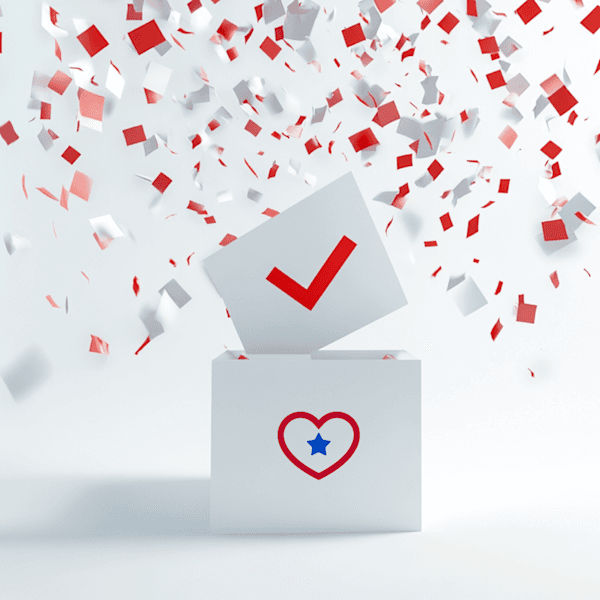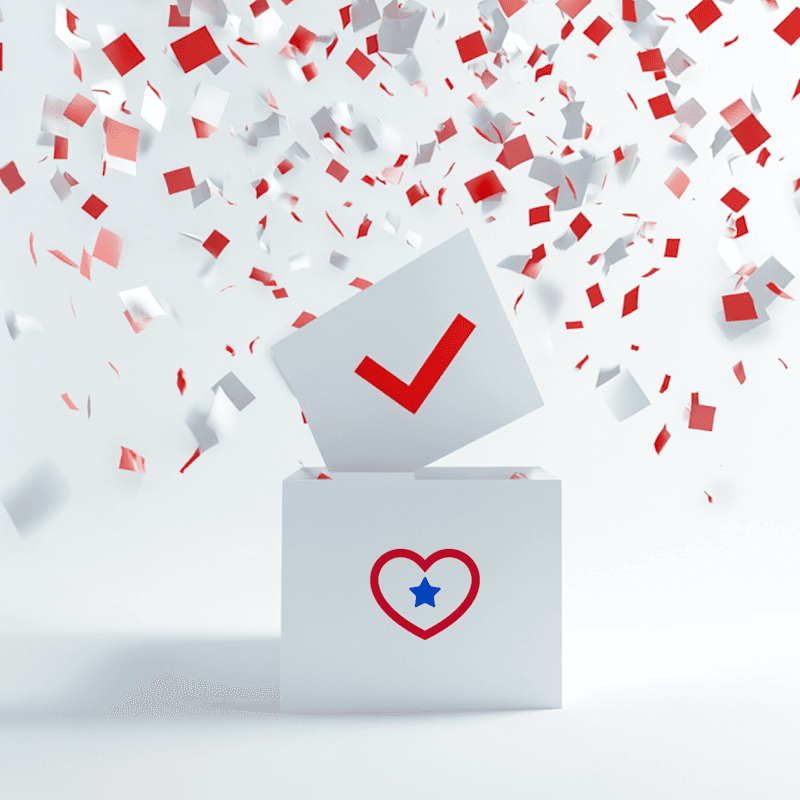
Money in Politics: How It Works and How We Fix It
The role of money in politics is impossible to ignore. It shapes everything from billion-dollar presidential races to grassroots campaigns for local office. It pays for yard signs, staff salaries, social media ads, and campaign events. It even influences who gets elected and who doesn’t.
But how much is too much? And when does necessary campaign funding cross the line into corruption or manipulation?
In this guide, we’ll explore the complex role of money in politics: the good, the bad, and the fixable. Whether you're a concerned citizen, a first-time candidate, or just curious about how politics really work, this article is your starting point.
What Is the Role of Money in Politics?
Money in politics affects who runs for office, how campaigns are won, and what happens after the votes are counted. It can help amplify underrepresented voices or drown them out entirely. Ultimately, money both helps and hurts democracy.
Money Can Empower Campaigns
Money isn’t inherently bad in politics. In fact, campaign funding can be a force for good. It helps candidates:
Get their message out through mailers, digital ads, signs, and speeches.
Connect with voters using texting platforms, phone banks, canvassing tools, and events.
Build campaign infrastructure to hire staff, rent office space, and launch outreach efforts.
Money can help level the playing field for first-time or underdog candidates. A $10 donation might not sound like much, but hundreds of small contributions can add up to real momentum.
LEARN MORE: Explore how political donations work.
Money Can Distort Democracy
Unfortunately, money can often silence candidates, too. The current system tends to reward:
Candidates with access to wealthy donors or family wealth
Incumbents with built-in networks of big contributors
Political parties and Super PACs that can outspend grassroots opponents
This dynamic is especially troubling at the local and state levels. In many races, outside spending now rivals or even exceeds what candidates can raise on their own. For instance, in the 2025 Wisconsin Supreme Court race, more than $73 million was spent between both candidates, and $46 million of that came from Super PACs and outside supporters.
This funding imbalance can discourage community leaders from running and leave only the powerful and wealthy with the means to run for office. It can also affect the way politicians lead. Some big donors may expect policy influence, leading to decisions that benefit a few instead of the many.
LEARN MORE: See how big money corrupts local elections and is reshaping communities across the country.
Understanding the Types of Political Money
Money enters the political system through many different channels, each with its own rules, loopholes, and implications:
Hard money is tightly regulated and refers to contributions made directly to a candidate’s campaign. These donations are subject to strict limits and transparency requirements (see your state’s regulations on campaign finance).
Soft money, by contrast, can be given to political parties for “party-building” activities, but it’s often used to indirectly support campaigns, sidestepping the limits placed on candidates themselves.
Dark money is funds funneled through nonprofits that don’t have to disclose their donors. Though these organizations claim to focus on issues rather than candidates, they often flood the airwaves with ads timed to influence key elections (learn more about how dark money impacts democracy.)
Outside spending by independent groups, including Super PACs, has exploded since the Citizens United decision. While these groups can’t coordinate directly with candidates, their spending often dwarfs that of the campaigns themselves.
Each of these types of political money plays a role in who gets elected and who has to fight harder just to be heard.
LEARN MORE: Check out a full explanation of the differences between hard money vs. soft money.
How Money Is Spent in Politics and Who Spends It
Campaign contributions don’t just fund voter outreach. They also shape legislation, access, and influence. Big spenders like corporations and lobbying groups can tip the scales long after the polls close.
How Much Money Is Spent on U.S. Elections?
The amount of money flowing into U.S. elections continues to break records. The 2024 federal election cycle reached a staggering $15.9 billion. The presidential race saw some of the highest numbers, with Kamala Harris’s campaign alone topping $1 billion, while Donald Trump’s campaign and outside groups supporting him added nearly another $1.5 billion.
More than $10 billion was spent on Senate and House races at the congressional level. Even judicial elections, once low-budget contests, are no longer exempt from big money.
Despite these massive figures, many down-ballot races can still be won with just a few thousand dollars or less. School board, city council, and even some state legislative races remain within reach for candidates willing to knock on doors, make direct appeals, and fundraise creatively.
In addition to campaign spending, money in politics also shows up behind the scenes through corporate contributions and powerful lobbying groups.
LEARN MORE: See how much it really costs to run for office in 2025.
How Corporations and Lobbyists Use Money to Influence Politics
Corporate money often plays a subtle yet pivotal role in shaping political outcomes. While corporations can’t donate directly to candidates, they can fund political action committees (PACs) and Super PACs, which then spend millions to support or attack candidate campaigns.
In addition, lobbying by industry groups adds another layer of influence. In 2024, lobbyists in the United States spent more than $4.4 billion. From fossil fuel companies opposing climate legislation to pharmaceutical giants protecting their pricing power, these efforts often shape policy behind the scenes.
Here are a few examples of organizations that spent billions on lobbying in 2024:
National Association of Realtors: Spent $86,385,941 on lobbying issues including housing, taxes, and insurance.
Pharmaceutical Research & Manufacturers of America: Spent $31,720,000 on lobbying issues including health, Medicare and Medicaid, and trade.
Meta: Spent $24,430,000 on lobbying issues, including computers and information technology, law enforcement, and homeland security.
Many former lawmakers even go on to become lobbyists themselves, reinforcing a cycle in which influence, access, and money circulate through the same halls of power, sometimes referred to as the revolving door. The result? Legislation that typically reflects corporate priorities more than community needs.
LEARN MORE: Explore how lobbying influences politics.
The Fundraising Challenge for Independent and Local Candidates
Without major-party support or built-in donor networks, Independent candidates often face significant fundraising hurdles. Independent and non-partisan candidates typically fund their campaigns through:
Small-dollar donations
Crowdfunding platforms
Volunteer networks
In-kind donations and community support
Candidates who embrace community engagement instead of big checks can still build viable, competitive campaigns. A series of small donations from friends, neighbors, and first-time givers raises funds and builds momentum and trust.
From neighborhood fundraising events to mobile-friendly donation links and peer-to-peer outreach, the most successful campaigns are now leaning into authentic, grassroots support over glitzy fundraisers. With modern tools and smart planning, many local candidates are proving that you don’t need a massive war chest to win, just a message that resonates.
LEARN MORE: See how to fundraise for your campaign effectively.
How Can We Reduce the Influence of Big Money?
While money will always be part of politics, its outsized influence isn’t inevitable. Real solutions are already being tested across the country and can help restore balance and accountability.
Some ways to start making people matter more than money in politics include:
Transparency and Disclosure
Requiring all political donors and groups to disclose who’s giving what is one of the simplest ways to build trust. Voters should know who’s trying to influence their vote.
Public Financing
Some states and cities now offer matching funds or grants to campaigns that meet grassroots support thresholds. This allows candidates to spend more time connecting with voters and less time fundraising. In places where public financing is available, it’s already helping to level the playing field.
Democracy Vouchers
Seattle’s democracy voucher program gives each voter four $25 vouchers to donate to participating candidates. This idea has turned everyday people into campaign donors and helped elevate candidates who may not have wealthy networks.
Stronger Local Laws
Many cities and states are passing campaign finance reforms that go beyond federal law, like contribution caps, bans on corporate donations, and expanded public funding programs. These local experiments are creating blueprints for change elsewhere.
National Reform Movements
Across the country, activists are building momentum for systemic change, such as pushing for limits on outside spending, ending dark money loopholes, and strengthening election integrity. These reform efforts reflect growing frustration with a system that too often favors money over merit.
The Future of Money in Politics Depends on People, Not PACs
Every time a candidate wins on the strength of their ideas instead of their bank account, every time a voter learns who’s funding their local race, and every time a community rallies around reform, we take a step toward a healthier democracy.
Big money may still dominate headlines, but grassroots campaigns are making headlines of their own. These efforts prove that authenticity, creativity, and the power of real people still matter.
At GoodParty.org, we’re proud to support Independent candidates working to change the game from the ground up. Whether you're planning a campaign, considering a run, or simply want to understand how the system works, remember: the fight for fair, people-first politics starts with you.
Photo by Giorgio Trovato on Unsplash
You don’t need big money to make a big impact. Sign up today to access free resources for Independent candidates.

